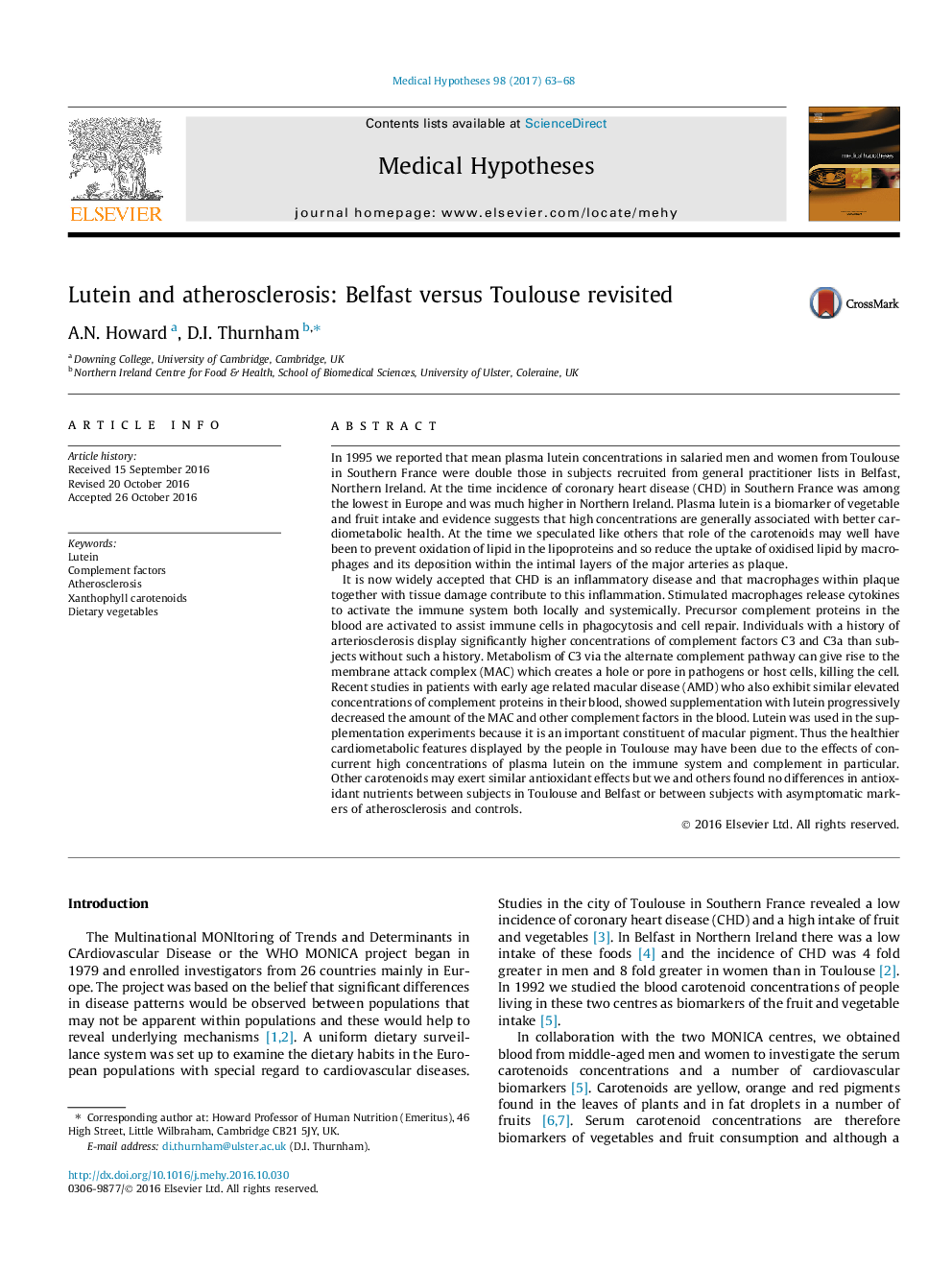| Article ID | Journal | Published Year | Pages | File Type |
|---|---|---|---|---|
| 5548604 | Medical Hypotheses | 2017 | 6 Pages |
Abstract
It is now widely accepted that CHD is an inflammatory disease and that macrophages within plaque together with tissue damage contribute to this inflammation. Stimulated macrophages release cytokines to activate the immune system both locally and systemically. Precursor complement proteins in the blood are activated to assist immune cells in phagocytosis and cell repair. Individuals with a history of arteriosclerosis display significantly higher concentrations of complement factors C3 and C3a than subjects without such a history. Metabolism of C3 via the alternate complement pathway can give rise to the membrane attack complex (MAC) which creates a hole or pore in pathogens or host cells, killing the cell. Recent studies in patients with early age related macular disease (AMD) who also exhibit similar elevated concentrations of complement proteins in their blood, showed supplementation with lutein progressively decreased the amount of the MAC and other complement factors in the blood. Lutein was used in the supplementation experiments because it is an important constituent of macular pigment. Thus the healthier cardiometabolic features displayed by the people in Toulouse may have been due to the effects of concurrent high concentrations of plasma lutein on the immune system and complement in particular. Other carotenoids may exert similar antioxidant effects but we and others found no differences in antioxidant nutrients between subjects in Toulouse and Belfast or between subjects with asymptomatic markers of atherosclerosis and controls.
Related Topics
Life Sciences
Biochemistry, Genetics and Molecular Biology
Developmental Biology
Authors
A.N. Howard, D.I. Thurnham,
